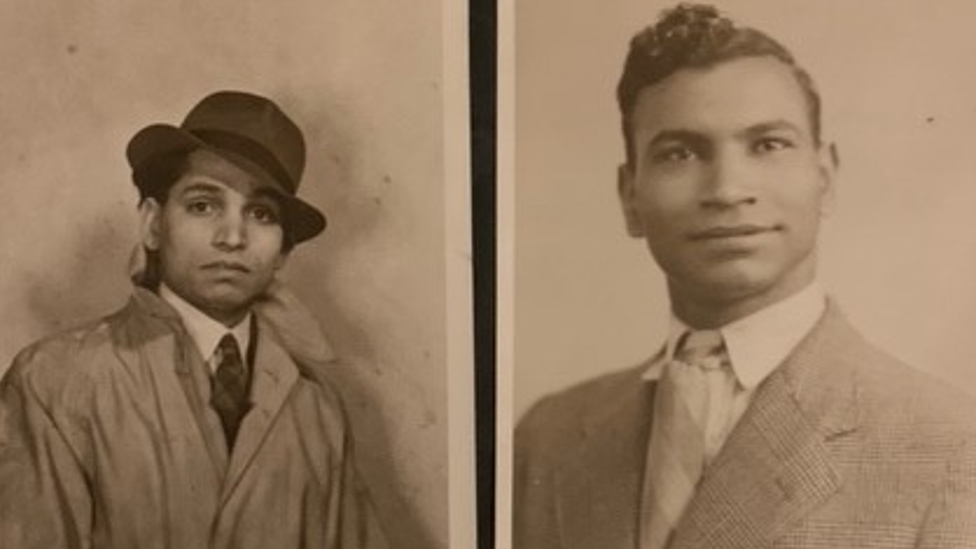The British Asians who stood with striking miners
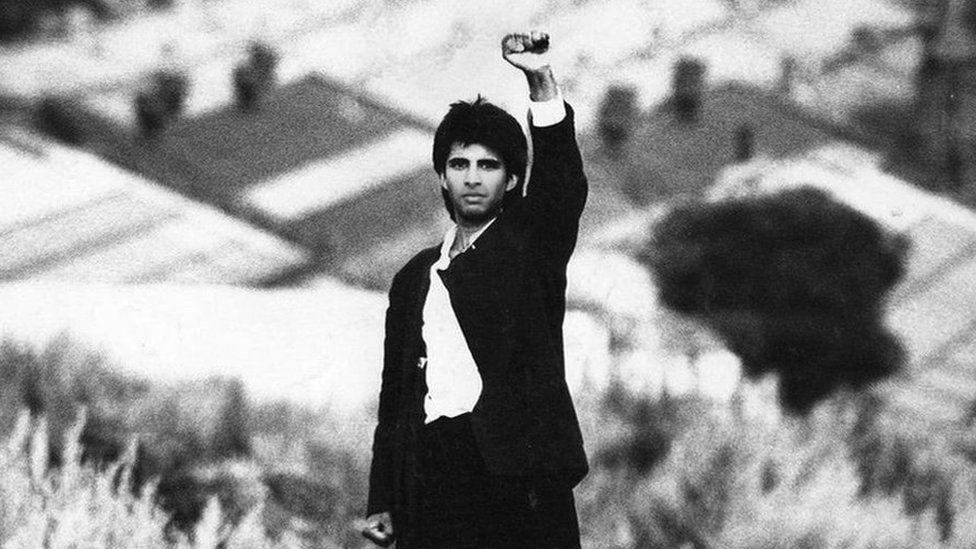
Mukhtar Dar has spent decades fighting racism since his youth
- Published
It has been 40 years since the national miners’ strike that saw the biggest industrial dispute of post-War Britain. Among those showing support were black and Asian groups, set up in the wake of racist violence in the preceding years.
What follows is the story of some of those whose experience of racism drove them to the collieries.
It is early morning in the not-quite-mid-1980s. An oversleeping young man is woken by pebbles being thrown against his bedroom window. Doing the throwing is friend Mukhtar Dar – a founding member of the Sheffield Asian Youth Movement (AYM) who would go on to set up a similar anti-racism collective in Birmingham.
“He came down, rubbing sleep out of his eyes,” Mr Dar recalls. Now together, and just about awake after several house-to-house calls, the group sets off by minibus for Orgreave, a colliery in South Yorkshire.
At the scene, they find a “massive picket line”, plus police “in huge numbers” with horses and riot shields. It is a picture mirrored at other sites across the country as workers take action against National Coal Board plans to shut 20 collieries – proposals supported by Prime Minister Margaret Thatcher’s government.
After the group arrives, Mr Dar remembers, one miner turns around, looks at them and is heard to ask, rhetorically, what they are doing there. Except smack bang in the middle of his inquiry is a pointed racial slur – and one not uncommon to the group's ears.
“The young lad that I had woken up turned to me and said ‘this is bloody good isn’t it? You wake me up at six in the morning, only to get this racism from the ones we came to support’.”
In 1984, Mr Dar takes a moment and responds to his friend.
“I said ‘look bro, we can see the bars… but some of them can’t’.”
It was Mr Dar’s view that, while not immediately apparent to all, there were wider political issues at stake.
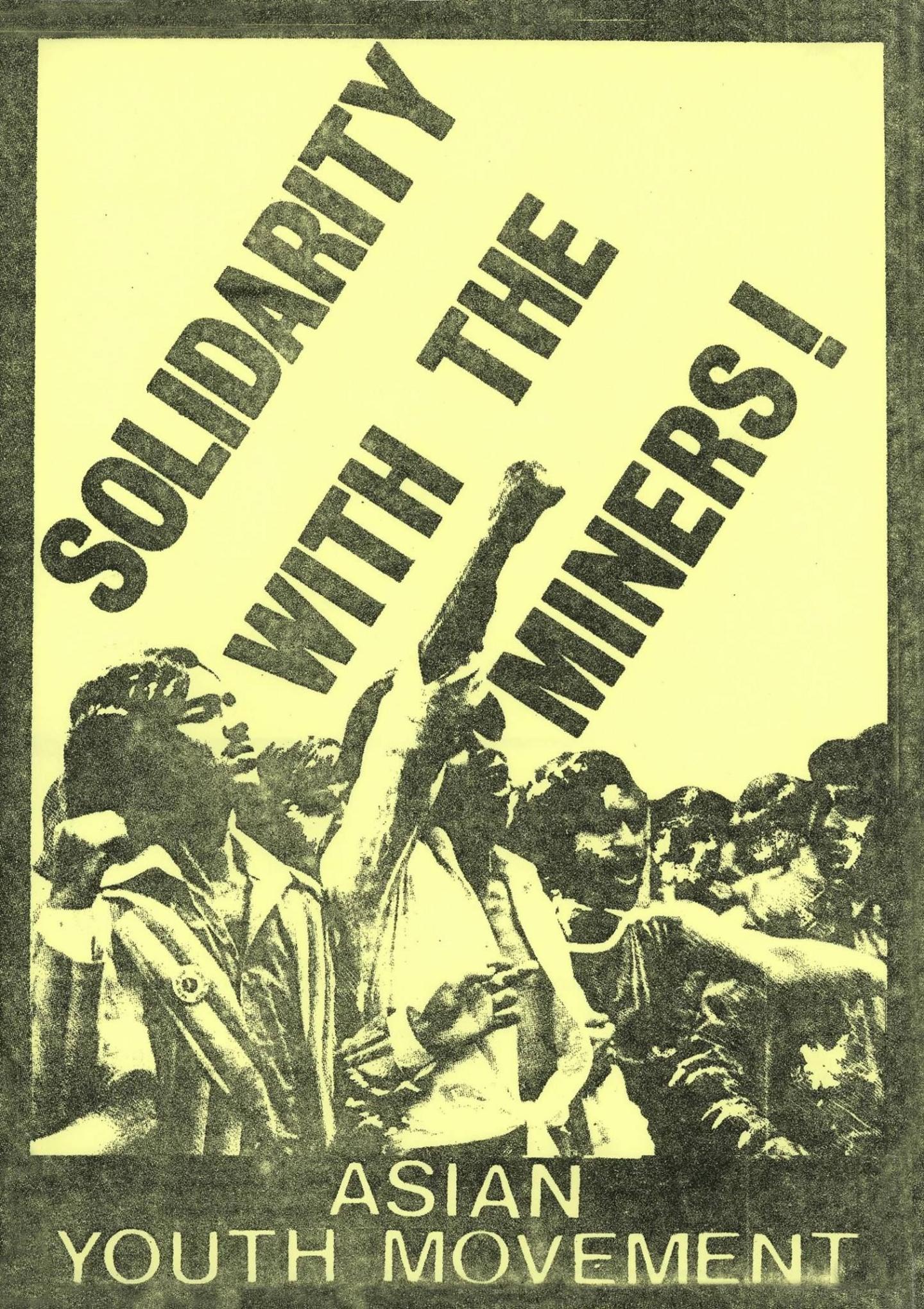
Mr Dar designed and printed posters in support of striking miners
The backdrop to the miners’ strike was mass unemployment, poor housing and lack of welfare provision around the country, said Mr Dar, now 62 and artistic director of Birmingham arts organisation Kalaboration.
Running alongside those conditions were outbreaks of racist violence, with Mr Dar turning to activism after being chased by a “van load of racists” carrying iron bars and baseball bats. In cities across England, he said, AYMs emerged.
In his view it was the largest grassroots political movement in the history of UK South Asian communities, for which he recruited student Palvinder Singh Gill whose brother Satnam had been murdered in a racist attack in Coventry in 1981.
In some political quarters, he continued, the depressed social conditions were linked directly to immigrant communities, “so we became the scapegoats, and that then fuelled [the] violence”, with far right organisations such as the National Front and Combat 18 coming “out of the gutters”.
“And what I was going through was echoed very much by every single Asian youth at the time, and so it was a collective experience," he said.
Also concurrent, Mr Dar said, was controversy over police stop and search powers – known as “sus”. Many critics of the scheme believed officers discriminated against young black men when applying measures that allowed them to stop and search on suspicion alone of a crime being planned.
In addition, women’s groups were taking on misogyny across a variety of public and private sectors.
“So what you had was a convergence of all of these different struggles beyond the coal fields…” Mr Dar explained. “We had no choice but to find common ground and come together.
“When we went into the mining communities, we recognised that they were just like us, fighting for their livelihood and fighting for their communities.”
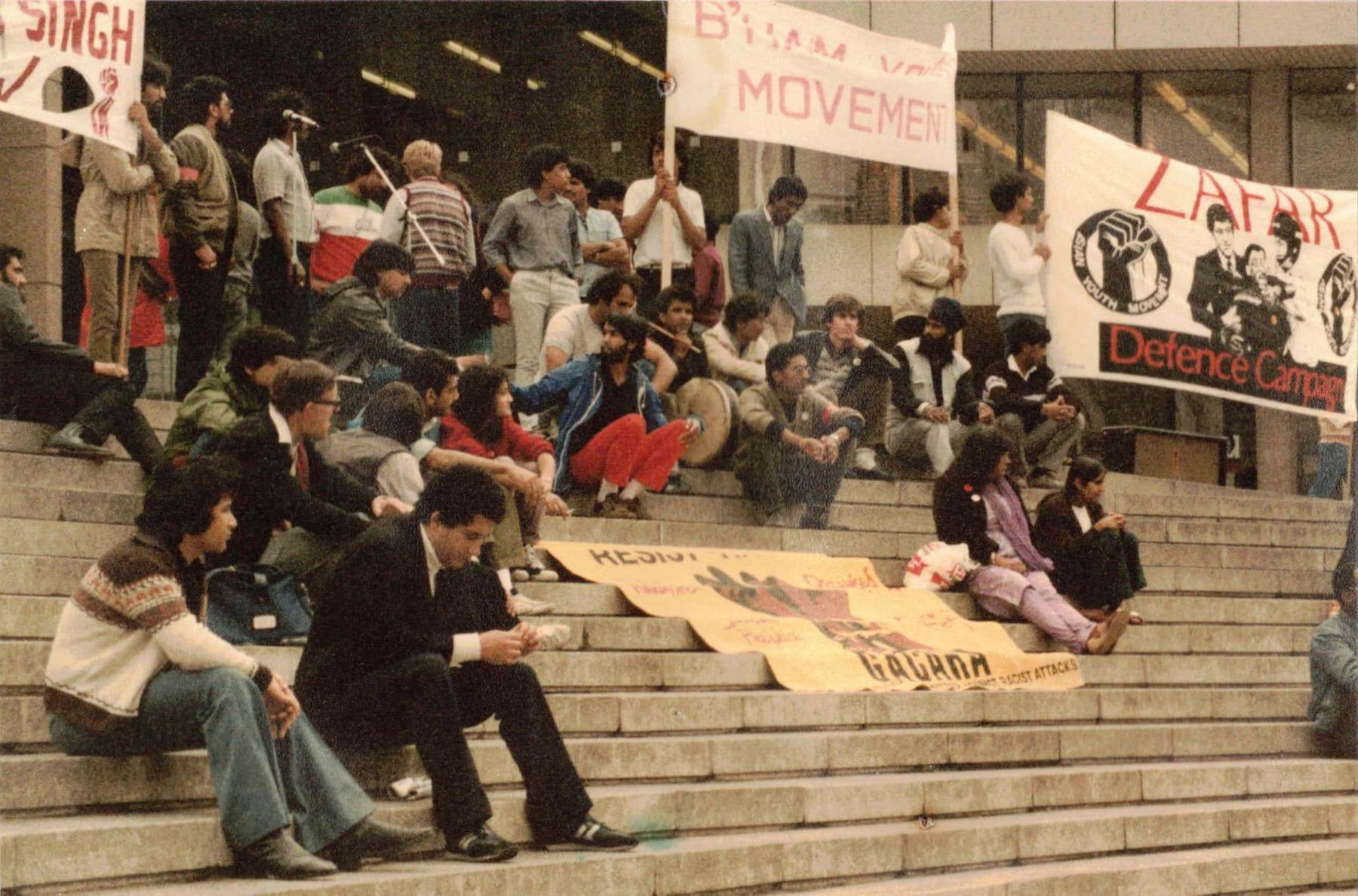
Mr Dar was a founding member of the Sheffield Asian Youth Movement and later a similar group in Birmingham
It was not always so straightforward.
Historically, strikes by black and Asian workers, by groups such as the Indian Workers Association, had not necessarily been supported by the traditional trade unions.
There had also been widespread racism within the trade union movement, explained Preeti Dhillon, author of The Shoulders We Stand On: How Black and Brown People Fought For Change in the United Kingdom.
A 1976 strike at the Grunwick photo-processing factory in North London had been a “turning point”, she said.
It was action “mostly led by brown women striking for better working conditions”, the historian explained.
In order to garner support, the women went on a speaking tour around the country, addressing dockers, factory workers and miners.
“At [that strike’s] height, 20,000 people from around the country came to stand on the picket line with them, including the miners with Arthur Scargill,” Ms Dhillon said, referencing the National Union of Miners’ (NUM) president.
“That was a real show of solidarity between all members of the working class, regardless of race."
When the 1984 miners’ strike came about, the move was reciprocated.
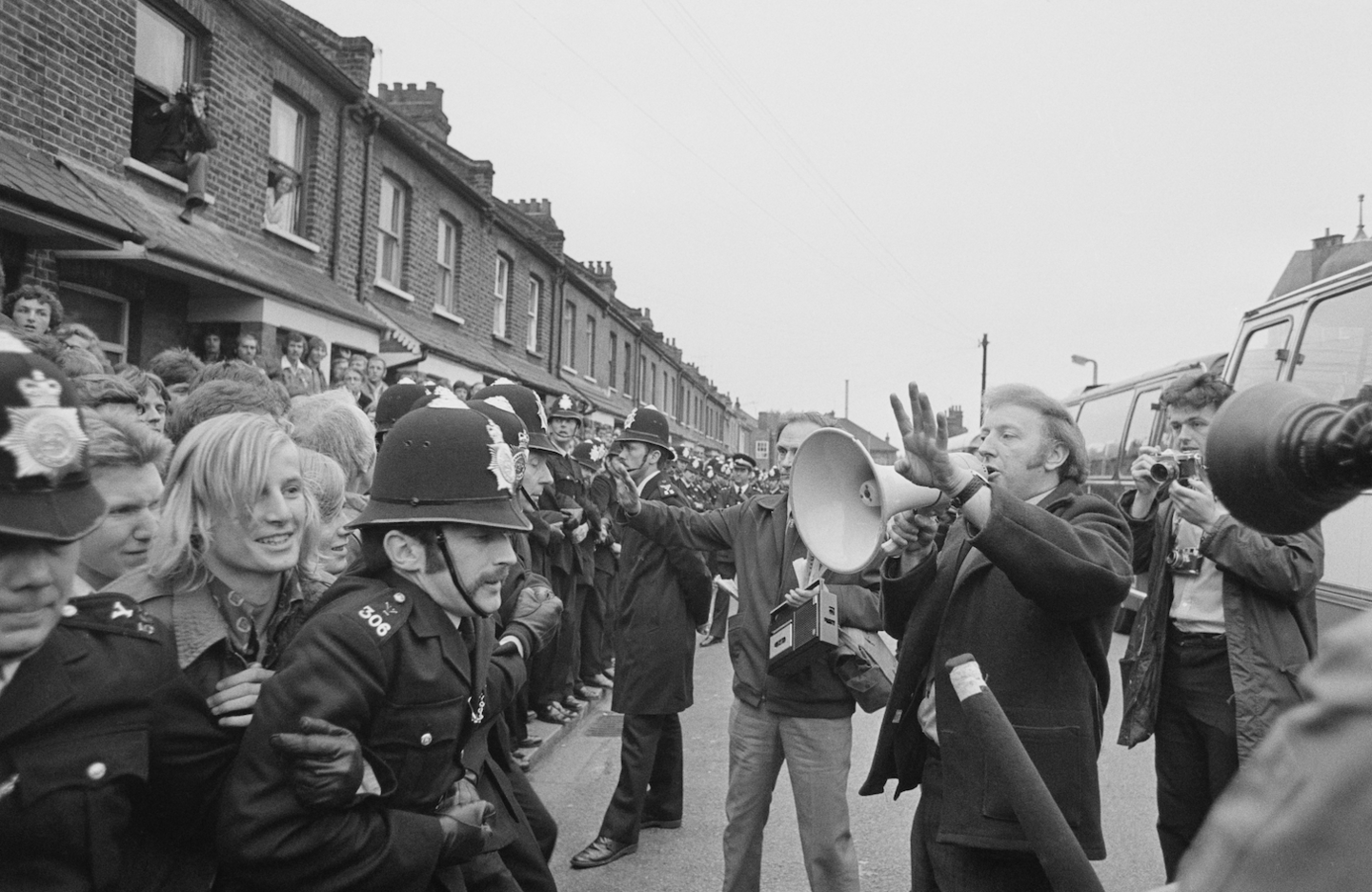
NUM President Arthur Scargill supported striking Asian workers at the Grunwick factory
There were many examples of how South Asian communities helped support striking miners, said Taj Ali, co-editor of Tribune magazine.
“We know,” he said, “that Sikh temples in Birmingham, for instance, raised an estimated £5,000 for the strike.”
Fundraising was “absolutely key”, he added, sharing an anecdote about volunteers vying for a key collecting spot on Soho Road in Handsworth, Birmingham, where they knew the most money could be made.
“These are communities that suffered poverty, that struggled with all sorts of issues,” Mr Ali said, “and yet they were on the forefront of supporting the miners.”
Those communities, he said, “understood the connotations, they understood the politics behind the dispute”.
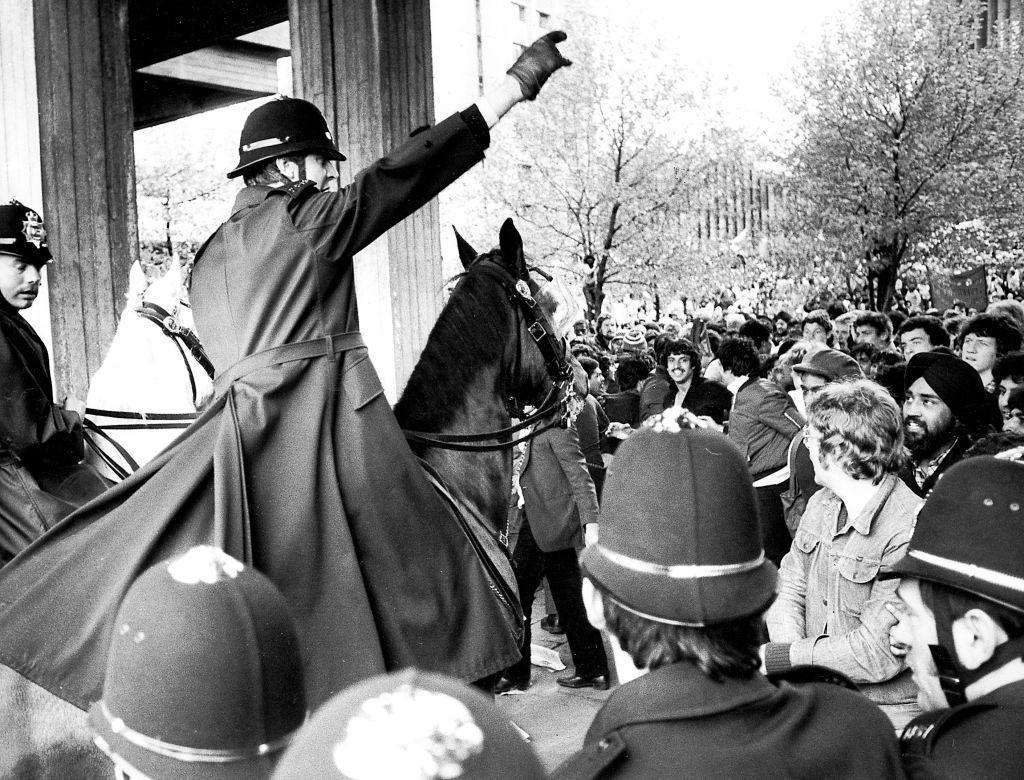
Satnam Singh Gill's murder sparked anti racism demonstrations in Coventry
That included policing. Criticism of police during the strike remains a focus of the events, and includes complaint over some officers’ actions towards pickets during clashes. Calls persist for a public inquiry into an episode known as the Battle of Orgreave – the site visited by Mr Dar – which resulted in dozens of injuries.
A total of 95 people were charged with riot and violent disorder offences and were later acquitted.
Such circumstances struck a chord with both Mr Dar and Mr Ali, who said Asian people had experienced police violence during the era, forging, they explained, even more links between the groups.
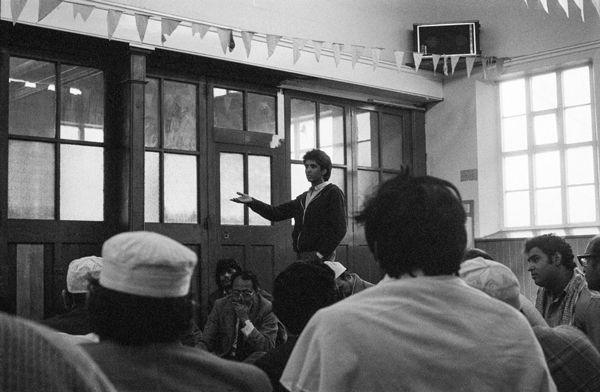
Mr Dar spoke in support of the miners at temples
Mr Dar said that after standing alongside miners, he would return from picket lines to mosques and temples to talk about mining communities and help raise money for them.
And Mr Dar’s actions, Mr Ali said in turn, had had a powerful effect, irrespective of the fact the miners ultimately lost their dispute.
“It was such a difficult experience having to deal with racism psychologically as well as having to worry about your safety," Mr Ali said. “But [Dar] understood that [miners] still required support.
"South Asians were a tight knit community so just as they saw their future being eradicated so had the mining communities.”
Mr Ali's forthcoming book, Come What May, We're Here to Stay, looks at the tradition of political activism in British South Asian communities. From his research, he said miners had memories of such solidarity.
“I spoke to someone from the Welsh valleys, not a very diverse area, and she said 'Muslims supported us, Sikhs supported us, punks supported us, lesbians and gays supported us and Rastas supported us'.
“She felt it was an education for her.”
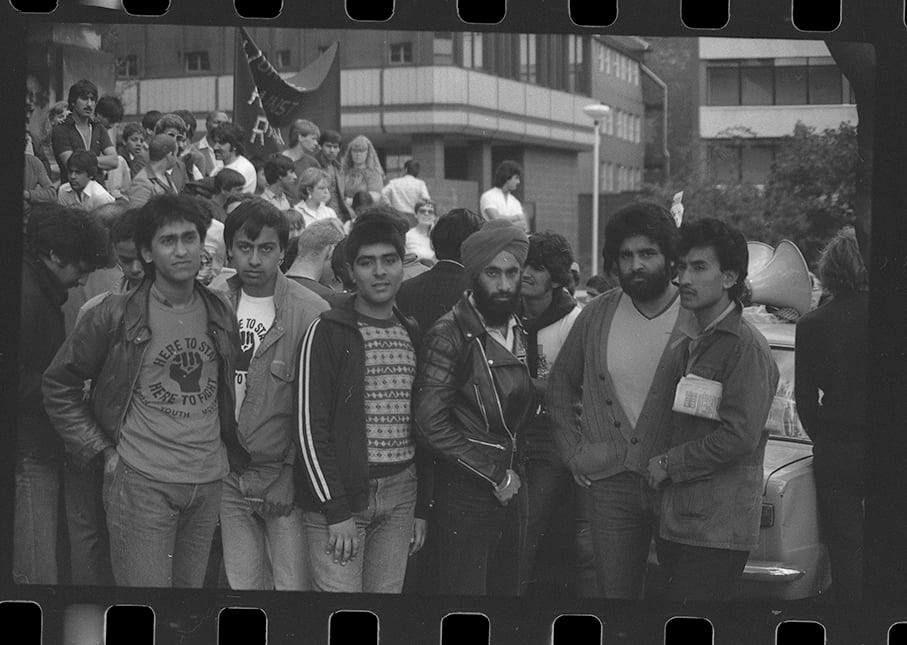
Asian Youth Movement groups were set up following a wave of violence in the 1970s and 80s
Follow BBC West Midlands on Facebook, external, X, external, and Instagram, external. Send your story ideas to: newsonline.westmidlands@bbc.co.uk, external
Related topics
Related stories
- Published2 March 2024
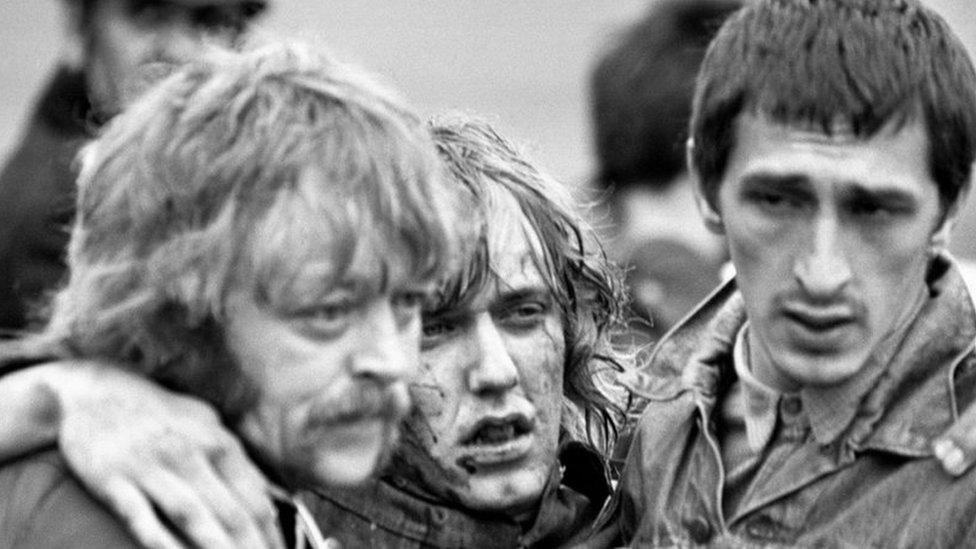
- Published15 June 2019
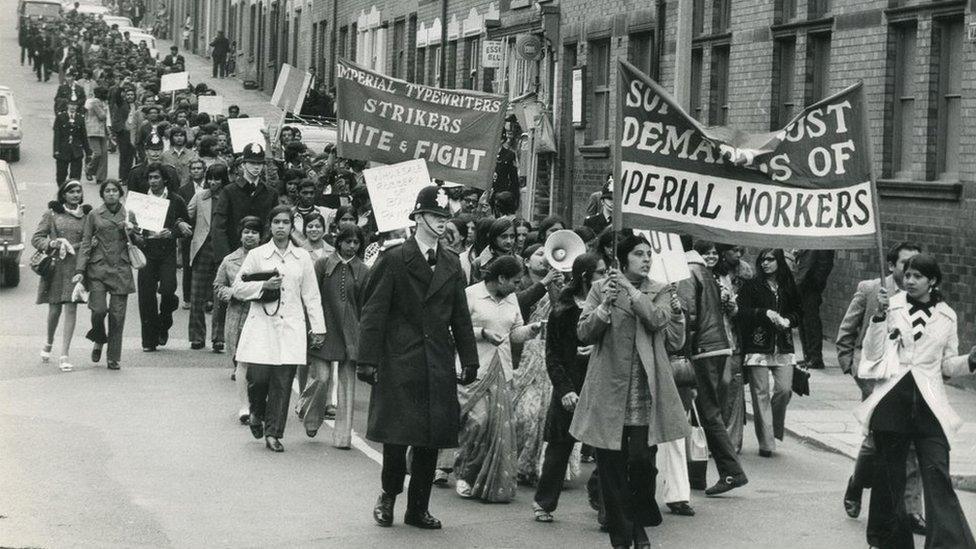
- Published13 November 2021
